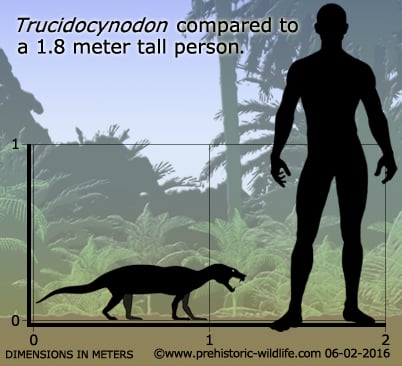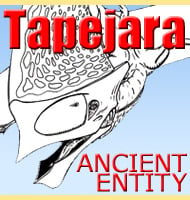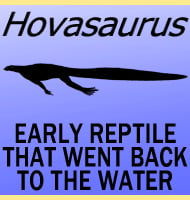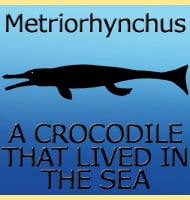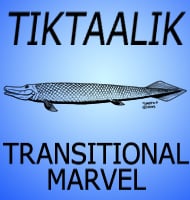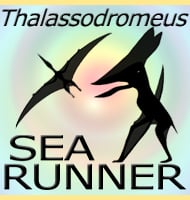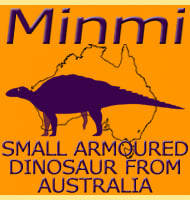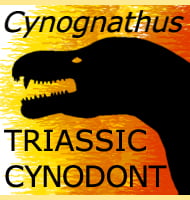In Depth
If Trucidocynodon could be notable for just one thing it would be size. At over a meter in length Trucidocynodon was positively huge for a cynodont as most of its relatives were rarely more than about half a meter. The large size growth of Trucidocynodon may have been a result of continuing divergence of archosaurs in South America, particularly the larger rauisuchians and emerging dinosaurs. By growing slightly larger, Trucidocynodon would have been able to hunt larger prey to keep up with these new predators, and Trucidocynodon may have hunted the smaller and juvenile ancestors of the dinosaurs.
Trucidocynodon is classed within the Ecteniniidae group of cynodonts upon the basis of similarity with the genus Ecteninion
Further Reading
- Trucidocynodon riograndensis gen. nov. et sp. nov. (Eucynodontia), a new cynodont from the Brazilian Upper Triassic (Santa Maria Formation). - Zootaxa 2382:1-71. - T. V. de Oliveira, M. B. Soares & C. L. Schultz - 2010. – Functional morphology and biomechanics of the cynodont Trucidocynodon riograndensis from the Triassic of Southern Brazil: Pectoral girdle and forelimb. – Acta Palaeontologica Polonica. 61 (2): 377–386. – T�o Veiga De Oliveira & Cesar Leandro Schultz – 2016.
